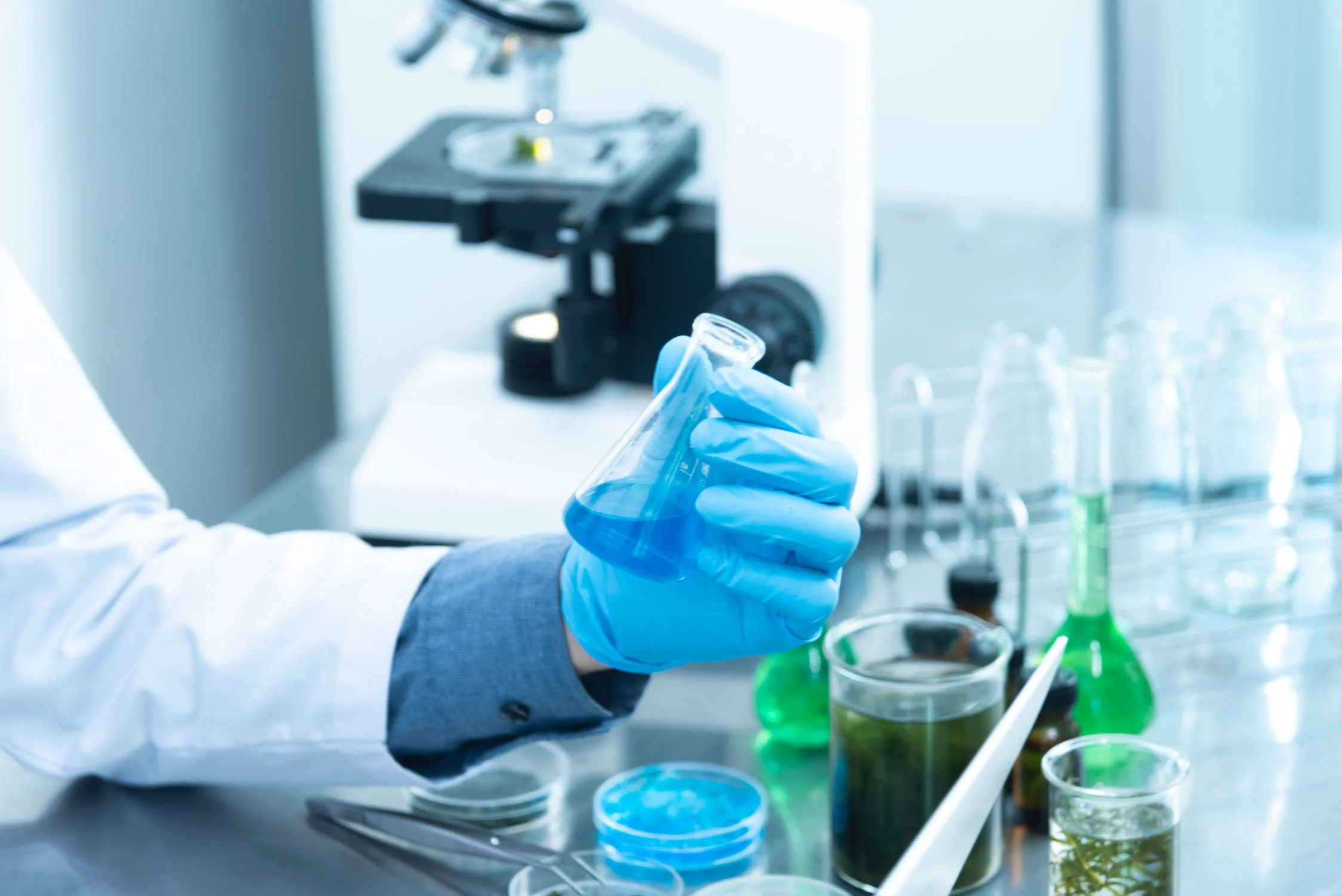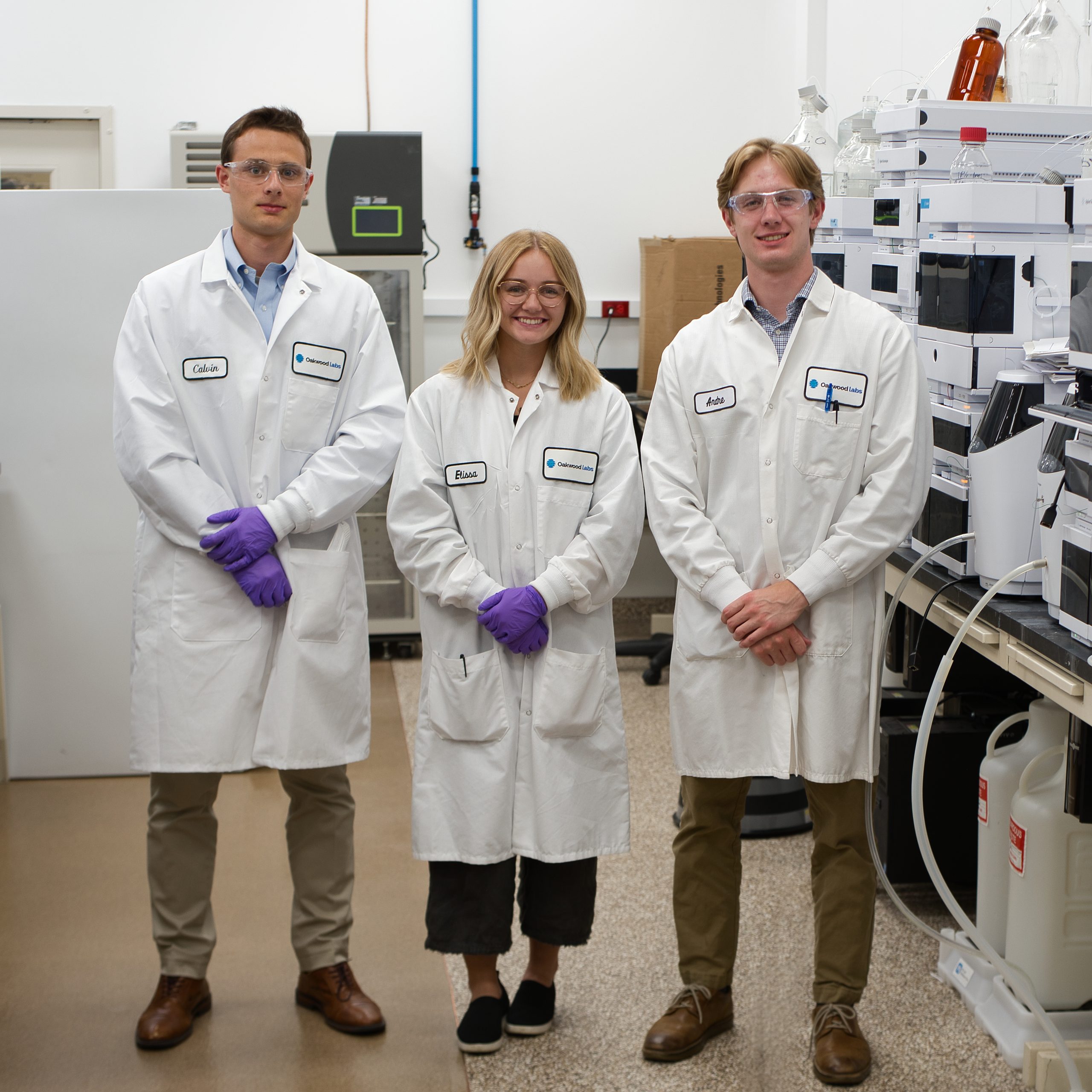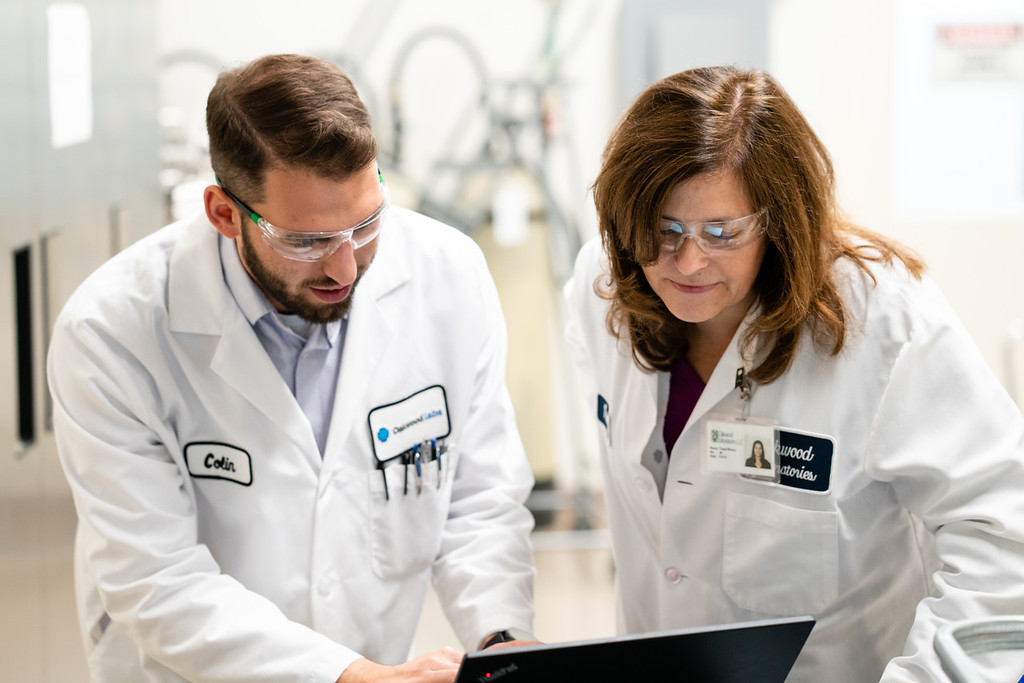Archives by Month: April 2022
With over 20 years of experience developing time-release pharmaceuticals, Oakwood Labs is a trusted industry source for pharmaceutical products that include PLA and PLGA microspheres. PLGA and PLA polymers are FDA-approved biodegradable and biocompatible polymers that have been used in medical devices, including microspheres.
PLA Microspheres vs. PLGA Microspheres
PLA and PLGA microspheres are widely studied polymers in the medical field, as they allow for the encapsulation of the desired active pharmaceutical ingredient or drug. The PLA microspheres aide in controlling the release of the drug from the polymer matrix and allow for a sustained release of the drug over a period of time that can vary from weeks to several months.
PLA microspheres exhibit asymmetric centers in their backbone which result in either D or L forms, producing PDLA or PLLA. PLGA is the copolymer of D, L-lactic acid with glycolic acid.
While both PLA and PLGA microspheres are insoluble in water, their absorption of water causes them to degrade over time. The methyl groups of PLA microspheres decrease the water uptake properties of the polymer, thereby extending its time-release properties.
One of the most important factors that affects the degradation rate of PLA and PLGA microspheres is the molecular weight of the polymer. Crystalline parts of the polymer exhibit more resistance to degradation. As Keles states, “the crystallinity of the polymer depends on compositions. For example, increasing the percentage of glycolide monomer in PLGA backbones decrease polymer crystallinity.”
PLA and PLGA Microspheres Play a Critical Role
One advantage of working with PLGA and PLA microspheres is the fact that the polymers can be used to encapsulate almost all types of drugs. This includes:
- Small molecules
- Peptides
- Polypeptides
- Proteins
It’s possible for the microspheres to have such diverse abilities because they come in a variety of comonomer ratios, molecular weights, and end-capping configurations. This allows the release duration to be tailored for each specific drug. In addition, the release profile, such as the burst release, can be modified by choosing the appropriate polymer for the reaction.
The release profile of the drug over time is dependent on the specific drug that is being encapsulated by the PLA and PLGA microspheres. Interactions between the polymers and the drug can be positive or adverse and require an in-depth understanding to develop a successful microsphere product.
Our Process of Developing PLGA and PLA Microspheres
In initial production stages, we utilize small batches to allow for testing of a multitude of trial batches and rapid production. As we develop the formulation with the desired time-release profile and additional desired characteristics, we then refine methods of production. Our processing of developing PLA and PLGA microspheres starts in small batches to ensure that all desired properties are met and can then be scaled to a commercial production process.
Our Chroniject™ PLA/PLGA microsphere time-release injections are a leader in the industry and have several key benefits. Some of the benefits include:
- Rapid development of formulations with small-scale batches that are easily scalable
- Proven lot-to-lot reproducibility
- Flexible release durations that vary from one week to one year
- Applications in multiple therapeutic indications (CNS, neurology, ophthalmology)
Contact Us for Your PLA/PLGA Microsphere Needs
Oakwood Labs is equipped to support all development phases of time-release drugs using our PLA/PLGA microsphere technology. If you are interested in knowing more about how our microspheres can help you, contact our team today.
Oakwood Labs was founded over 20 years ago as a specialty pharmaceutical company, and we operate as a one-stop source for all aspects of long-acting injectable development. Our focus is placed on developing and manufacturing sustained-release injectables that function to benefit the intended population.
When looking at pharmaceutical development, it is important to take a systematic approach for all of the necessary steps. While we are equipped to assist in any stage of the process, it is important to work patiently in sequential order. For a new project, a pharmaceutical feasibility study is the first step in the process.
Defining a Pharmaceutical Feasibility Study
When you first set out to release a new drug product into the market, it is important to have goals and objectives in mind, and pharmaceutical feasibility studies help assess the practicality of a proposed idea. Put simply, this process is the study of total actions and outcomes.
Pharmaceutical feasibility studies determine processing factors that will lead to an optimized outcome for your pharmaceutical project, which gives confidence that the goals of the process can be achieved. It also can uncover aspects of a project that are capable of fully changing the scope, analyzing these aspects to avoid wasting resources in the future.
The Importance of Conducting Pharmaceutical Feasibility Studies
Feasibility studies are an essential step in the development process because they help determine the suitability of a particular project. The overall purpose looks to determine whether your process is designed properly and precedes the scale-up and development of the sustained-release formulations.
A pharmaceutical feasibility study can also be used to better understand risks that you might encounter and challenge critical manufacturing components. With this progression, you will better understand the expectations against the reality of your project, further being exposed to the difference in planned scale, materials, or even equipment.
Achieving Optimal Timing
The timing of this process must be chosen strategically. If all the feasibility steps are not completed, it is possible that you will end up wasting time and resources in the future. The timeline varies based on each individual project, but choosing the right team to work with can mitigate the lifecycle of the project.
Process Breakdown
The overall goal of a pharmaceutical feasibility study is to determine whether a target product profile is achievable. We study this through a multistep process:
- Pre-formulation activities – This involves developing a strategy for batch production. It is possible to select initial polymer and solvent candidates and understand analytical methods that will provide support to the testing process.
- Characterizing feasibility formulations – Our team focuses on producing batches at a small scale when manufacturing. The data from the first iteration of batches is used to determine the next iteration of batches. Characterization results include drug load, particle size, residual solvents, in vitro release profiles, polymer molecular weight and more.
- Finalizing feasibility report – In this step, we compose a report and prepare for the process of outsourced animal testing. We take the lead candidate formulations and prepare materials that can assist in the animal pharmacokinetic (PK) testing process.
Benefits of Working with Oakwood Labs for a Pharmaceutical Feasibility Study
While pharmaceutical feasibility studies can be seen as an in-depth process, we work to make it as simple as possible. With over 20 years of drug encapsulation experience, Oakwood Labs is considered a leader in the pharmaceutical industry. Our research and development labs are filled with state-of-the-art technology, all of which is available to solve pharmaceutical challenges.
Oakwood Labs is the destination for your project, regardless of your current stage. For rapid formulation development, we typically initiate projects with small batches. Every project is carried out with an experienced formulation and analytical team.
If you are looking for additional support during the development of your project, we have other services to help, including:
Request More Information from Oakwood Labs
From pharmaceutical feasibility studies to Phase 3 clinical batches, Oakwood Labs is ready to assist your project.
Request more information today to see how we can help with your next pharmaceutical feasibility study!
This year’s PDA Annual Meeting is occurring April 4-6 in Dallas, TX. This event is focused on the theme of “Level Up: Agility in the New Normal” and will highlight items to look forward to in the future of pharmaceutical manufacturing.
Incorporating speakers, networking events, and panel discussions, this is an event that you will not want to miss. This year, we are excited to announce that we will be featured as an exhibitor.
We Look Forward to Seeing You
Our team has been focused on researching and developing sustained-release injectables, and we are always looking for opportunities to chat about our discoveries and processes. If you are looking for an aseptic lab staffed by experts, consider Oakwood Labs for your next project, as we can assist you in the following:
- Pre-formulation development activities
- Feasibility studies
- Scale-up of formulation
- Manufacturing toxicology batches
- ICH compliant stability testing
- Clinical trial manufacturing (Phase I, II, III)
- Commercial aseptic GMP manufacturing
We are so excited to meet you and show you what we have been working on, so be sure to come to visit the Oakwood Labs team at Booth #308.
Don’t Hesitate to Reach Out
The 2022 PDA Annual Meeting is sure to inform us about new trends and inspire us to be innovative as we take on the pharmaceutical challenges that lie ahead. If you are unable to attend the event, we would be happy to chat about our experience at the occasion or provide information on extended-release technology and more.
Reach out today with any questions you may have. We look forward to seeing you soon!
At Oakwood Labs, we are known for our experience in pharmaceutical research and development. As a premier resource for all phases of development including Phase 1 clinical trials, we continue to lead the industry, delivering products that provide enhanced therapeutic benefits.
A Phase 1 clinical trial is extremely important as it introduces a new drug to human subjects. Considering this study is critical in early phases of drug development, appropriate guidance and guidelines must be in place. To facilitate these Phase 1 clinical trials, Oakwood Labs maintains an aseptic, FDA-approved GMP manufacturing facility.
By having a GMP facility, it allows our team to follow stringent manufacturing practices, ensuring that pharmaceutical products are controlled and produced to the highest quality standards.
The Goal of Phase 1 Clinical Trials
Phase 1 clinical trials place extreme importance on pharma and biotech companies considering that this is how the safety and efficacy of a new drug is tested. Trials are used to assess and outline the best dosing that should be used in later phases, with the Phase 1 clinical trial being a defining moment, as it shows the chances of future commercialization of the drug.
When it comes to Phase 1 clinical trials, some goals include:
- Demonstrating that patients tolerate the drug well under investigation
- Ensuring that any adverse effects seen from these studies will be used to characterize the profile of a new medicinal product
- Determining the correct dosage and testing different schemes of the compound
- Observing preliminary signs of drug efficacy in regards to the condition or disease being treated
Critical Considerations in a Phase 1 Clinical Trial
With the goal of ensuring high-quality research, certain aspects need to be taken into account when designing trials. Some of the key considerations that our team reflects on in Phase 1 clinical trials include:
- Inclusion/exclusion criteria – These entail the characteristics of the subjects being treated in a Phase 1 clinical trial.
- Treatment scheme – This pertains to how the study’s drugs are being administered, suggesting the experimental drug administration dose and sequence with the best chances of success.
- MTD – An approach is required to determine the maximum tolerated dose (MTD) of the experimental treatment. This necessitates defining dose-limiting toxicities (DLTs), and is a central part of a Phase 1 clinical trial.
Oakwood Labs Offers More Than Phase 1 Clinical Trials
Oakwood Labs has over 20 years of experience, providing services for a variety of businesses across different industries. Our manufacturing abilities and advanced technology has allowed us to supply high-quality services and products.
As an industry leader in pharmaceutical development and manufacturing, we are proud to offer numerous services, including:
Contact Oakwood Labs to Learn More About Phase 1 Clinical Trials
Oakwood Labs is committed to developing reliable pharmaceutical products for our pharmaceutical partners, and we provide the expertise and dedicated staff to help you along the way.
Contact our team to learn more about Phase 1 clinical trials and the other services we can provide. We look forward to hearing from you.





